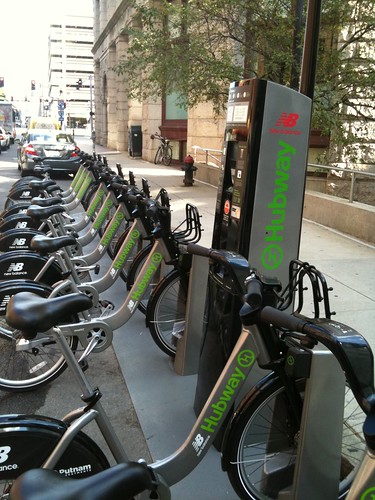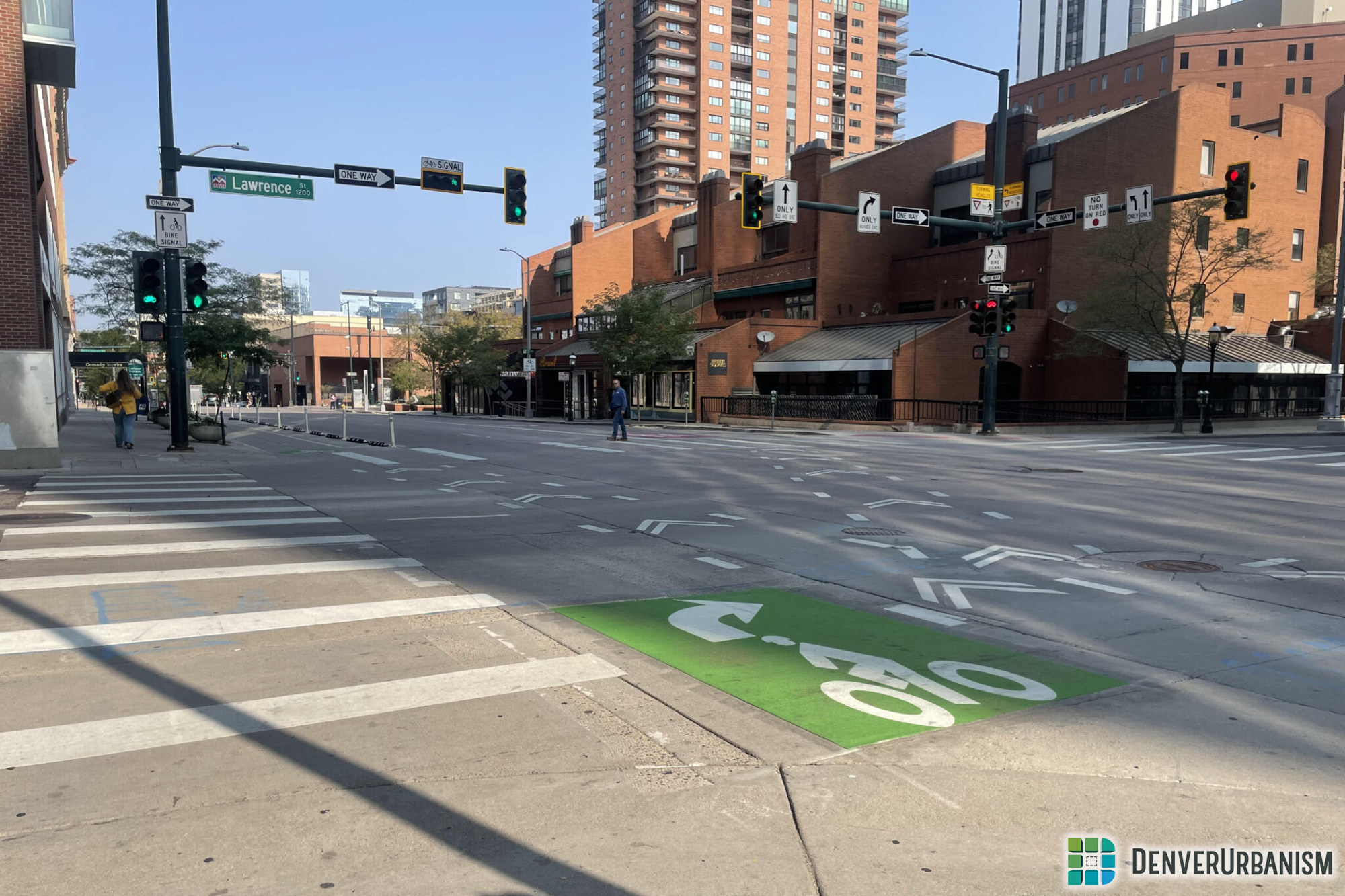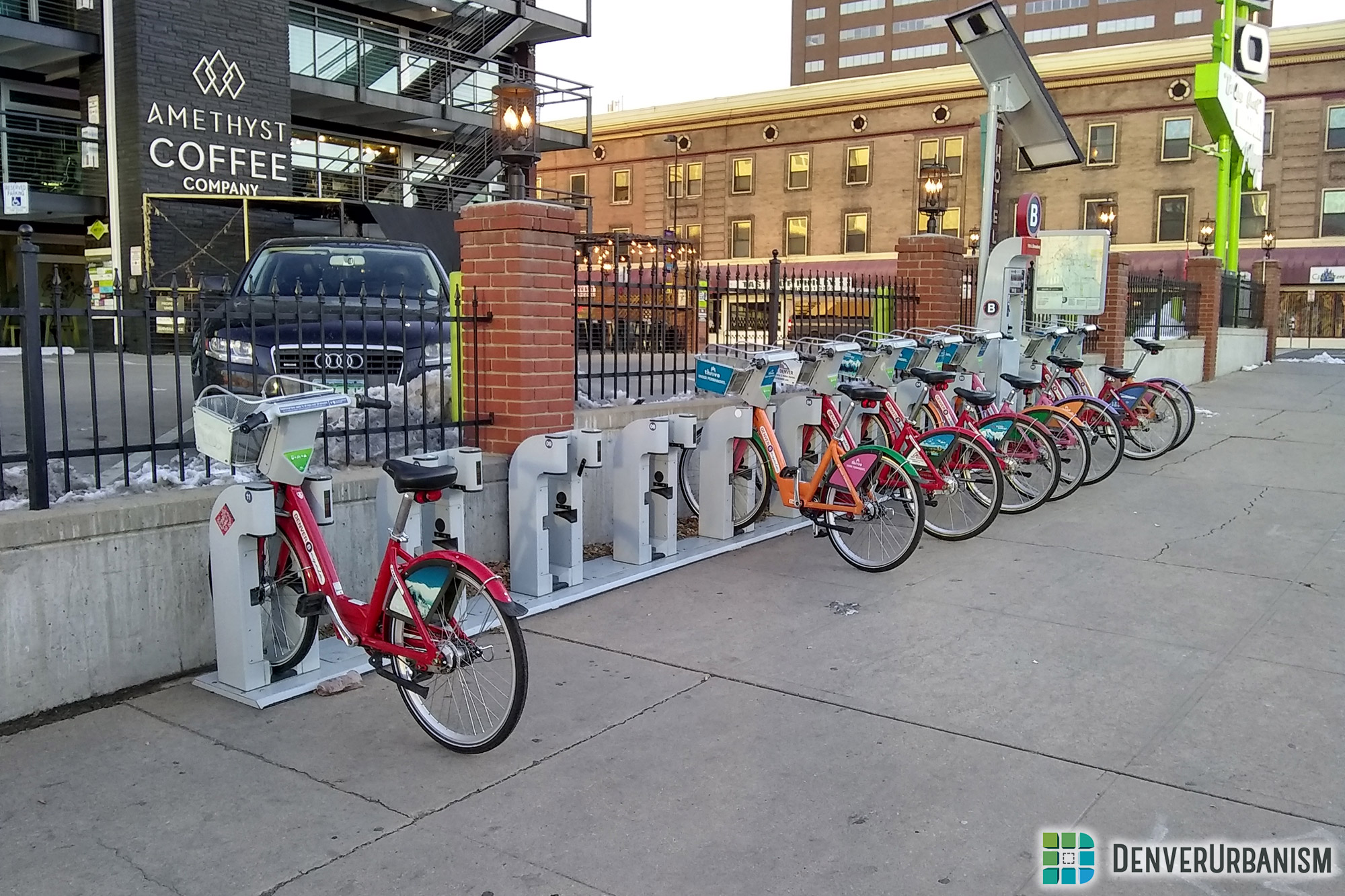 |
2010 was the year bikesharing first made it big in the US, with the opening of the first large-scale network in Denver, followed by even bigger ones in Minneapolis and Washington. That trend continued in 2011, with large new networks in Miami Beach and Boston.
Here are the current US bikesharing systems, ranked by their number of stations.
- Washington/Arlington, DC/VA: 140 stations
- Minneapolis/Saint Paul, MN: 115 stations
- Miami Beach, FL: 70 stations
- Boston, MA: 61 stations
- Denver, CO: 52 stations*
- Madison, WI: 27 stations
- Broward County, FL: 20 stations
- San Antonio, TX: 20 stations
- Boulder, CO: 15 stations*
- Washington State University – Pullman, WA: 8 stations
- Chicago, IL: 7 stations
- Omaha, NE: 5 stations
- University of California – Irvine: 4 stations
- Des Moines, IA: 4 stations
- Tulsa, OK: 4 stations
- Louisville, KY: 3 stations
- Kailua, HI: 2 stations
- Spartanburg, SC: 2 stations
The list is a lot more impressive than last year’s version. Nationwide, the total number of cities with bikesharing expanded from 8 to 18, and the total number of bikesharing stations more than doubled, from 251 to 559.
For the second straight year Washington’s Capital Bikeshare was the largest system, but it won’t be for much longer. A number of new cities will begin to launch their own networks in 2012 and 2013, most notably Chicago and New York, which are planning behemoth 300-station and 600-station systems, respectively.
Data for this list was compiled with the help of The Bike-Sharing Blog’s excellent map of world bikesharing.
* Denver and Boulder are counted separately, but cross-honor memberships. Together they have 67 stations.










Congrats to Denver B-cycle with an impressive movement! Always nice to see Denver in another top ten list. With Portland’s approval of a 74-station system that leaves us off the top 5 for the 2012 list. More important than beating Portland in some competition however is adequately providing for the unmet need of Denver B-cycle stations. Since there is already talk about combining 2012 tax ballot initiatives for CDOT/RTD projects through FasTracks part deux, let’s just throw in another 50 stations worth ($2.5 M)of Denver B-cycle on the same ballot! Potential names for this new tax – The options tax, choice tax, bye-bye portland tax, choose your own adventure tax, BRT tax (bikes, roads, trains)…you get the idea.
Denver B-Cycle will be expanding by 35 stations this next year.
B-Cycle has grant funding for 30 more stations next year the first seven of which will be here http://batchgeo.com/map/3cf9a7aac2eac4c1ccbadce643d22eaf
We still will be bumped though when those Chicago and NYC progrmas come on line although I understand why those systems would be larger than ours.
Personally I would not mind a small property tax bump for ped/bicycle infrastructure throughout the city (Denver Moves, Bcycle stations, additional bicyle/pedestrian connections for isolated neighborhoods to transit, bike routes, pedestrian areas etc)
I also would support a larger property tax bump to build transit infrastructure on top of Fastracks (BRT, Streetcars, Higher frequency bus service, etc). Fastracks is good but it’s primary purpose is getting from the suburbs/airport to downtown and back. Fastracks only modestly improves Intra-Denver transit and most of the remaining corridors are remaining because they didn’t make sense to begin with.
wondering why minneapolis and dc have been able to expand so much faster than denver. what funding sources do they have that we are missing out on?
@Dave- I can not speak for DC but Nice Ride in Minneapolis/Saint Paul has been able to successfully expand the network in part by the tremendous demand from users but also business/schools wanting and willing to pay for stations. It also helps that Nice Ride (the Bike sharing system) has a strong funding partner in Blue Cross Blue Shield – Minnesota. As a Denver native living in Minneapolis, the Twin Cities is eons ahead of Denver in bike infrastructure. It makes building out the network much easier.